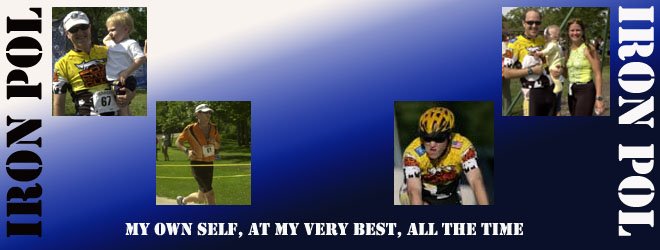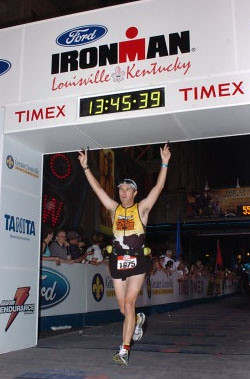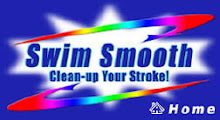There are two types of people when it comes to knowledge. First, there is the type that reads all the rules and follows all the instructions, sometimes to the point of obsession. Then, there are dads. You all know the type. Extremely complex swing-set with 480 parts (some of which may have come from an alien spaceship). "No problem, we'll just set these instructions over here where they won't get in anyone's way." New crib for the baby. "Easy enough. Let's just put the instructions up here on this dresser so they don't get ruined."
As someone approaches triathlons, either approach will lead to challenges that could be avoided. For the person who gets too caught up in the academics of a triathlon, the risk is never actually getting started. There are lots of things to learn, and nobody will learn them all reading a book. On the other hand, failing to read up on some issues can create major problems. Or, what some of us like to call "lessons learned." But these lessons have all been learned by others (probably lots of others).
So, what's a budding young (or old) triathlete to do? A good approach is to first get a grasp on those things that can help prevent injury or learning poor technique. An awful lot of damage can be done if a few key lessons aren't learned immediately.
Swimming is probably the most technically demanding aspect of a triathlon. There just isn't any room for "faking it" in the water. I spent several months pretending to be a swimmer. In addition to wasting several months, I was reinforcing poor techniques learned as a younger swimmer. Luckily, someone who is now a regular swim training partner saw my struggles and made some helpful suggestions. The first was the book Total Immersion Swimming. If you are a novice swimmer, this book can save you a lot of pain. And if you aren't keen on learning from a book, find a swim coach familiar with swimming for triathlons. After a few months of learning and drilling the TI way, it is becoming clear that a coach will still be beneficial.
Unlike swimming, biking has long been a part of my life. Whether doing centuries on a road bike or schlepping around town on a mountain bike, I'm comfortable in the saddle. I've always owned bikes and have experience stripping them down to parade rest when needed. After purchasing my tri bike, it quickly became apparent that some knowledge does not equal enough knowledge. In addition to getting the feel of clipless pedals, aerobars, bar end shifters, and "oddly" mounted water bottles (seat post), there are the mechanical issues to be considered. Mountain bikes and most lower end road bikes use considerably different tires and tubes. Most use schrader valves (the more commonly seen "fatter" valve stem, like that on a car tire) on lower pressure tubes. They also tend to be made of heavier tubing. Higher end bikes use high pressure tires (120psi vs 40-60psi) and, as I learned, generally have lighter weight tubing.
The end result of high pressure tires with lighter tubing is a more rapid loss of tire pressure. While a mountain bike with a standard 35psi tire might go an entire season without significant loss of pressure, a road or tri bike with 120psi tires might lose 25-30% of tire pressure in a week. And the lower pressure puts the tire at great risk of a pinch flat.
That leads to another important lesson on bikes. Before leaving the shop, two items should be addressed. First, learn how a tire is changed. If you are comfortable with changing tires, make sure you have a saddle pack, spare tire, and inflation source. Anyone interested in what happens if you fail to take care of those two points can check out this earlier entry. (What was it I said about these lessons having already been learned?)
Like swimming and biking, there is one very important task to accomplish before hitting the road for some intense run training. Unless you enjoy running barefoot, the proper pair of running shoes must be purchased. This means more than going to any handy store and buying the coolest looking shoes that match your outfits. That will definitely make you look cool. It will also probably cause any of a variety of injuries to your body.
Runners' World has an excellent article on selecting proper shoes. The method is low tech and inexpensive. While it might not lead you to the exact perfect shoe, it will help prevent purchasing a neutral shoe when you should have a motion control shoe. By the way, Runners' World also answers the question about what those mean. Runners plagued with shin splints, foot or knee injuries, or other running related injuries will benefit from verifying their running mechanics.
Even better than the simple tests shown by Runners' World is a gait analysis. Many local running stores now offer this service at no charge. Using a treadmill with a high speed camera, they can videotape your stride and make suggestions based on the results. Once a pair of shoes is selected, they can tape your stride in those shoes to ensure they help you run efficiently.
Swimming, biking, and running are activities in which most can participate with little formal education. But we all benefit from a bit of knowledge. As you approach the sport of triathlon, try to learn from the mistakes of others. And if you're not sure where to look, just ask me. I'm sure I've made just about every one of them.
Subscribe to:
Post Comments (Atom)











2 comments:
I am that person....trying to get it all right...subconciously postponing the real thing? Great post! Keep bantering back and forth about gettting a swim coach. Lucky to have a few very close to home, but a little pricey. Oh well...gotta send that money somwhere, right?
What a real post - I am the sort who tends to ignore instructions if I cannot understand it at one go. Except IKEA furniture - I have come to learn that I have to follow the instructions religiously to have any chance of getting it right. :)
The trouble is that I bring the same attitude to Tri training - I think I don't have enuff time as it is, so I refuse to read anything longer than a couple of pages and do my training "ad-hoc". I am coming to the point where I am telling myself that I have either get serious about this or get out. It was extremely frustrating for me to opt out of the Oly Tri. :(
Thanks for the link to Runners World. I am due new running shoes and I don't have a clue what to buy. (And the shops in Singapore are pretty hopeless - most of them don't even know what pronation is.)
Post a Comment